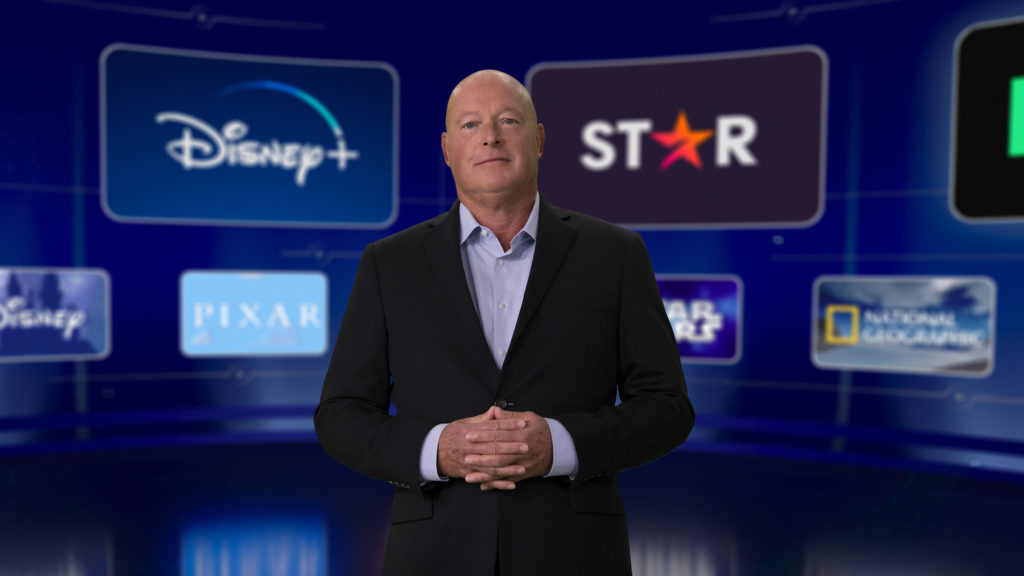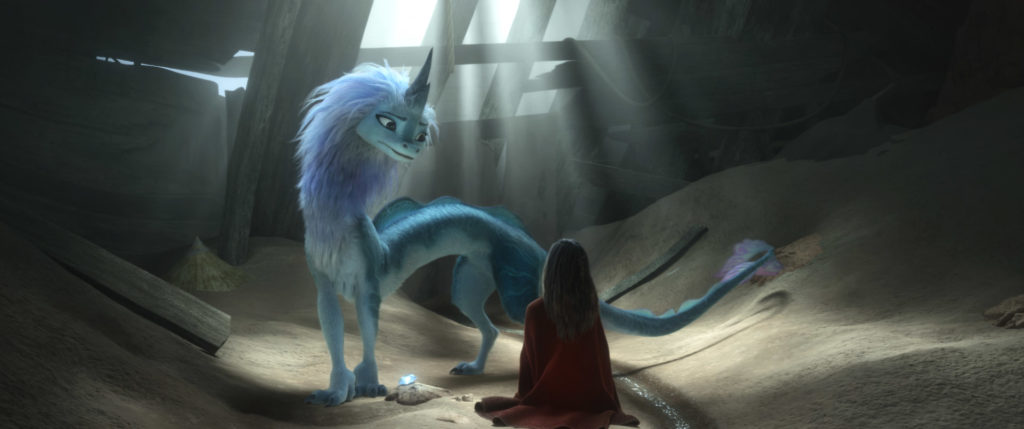Raya and the Last Dragon, Black Widow Maintain Theatrical Commitments with Existing Release Dates in 2021
By Daniel Loria and Rebecca Pahle
The Walt Disney Company unveiled its newly implemented Direct to Consumer (DTC) strategy at its 2020 Investor Day, restructuring its entire production and distribution departments to a digital-first approach.
The global exhibition community anxiously awaited the company’s announcements in relation to its theatrical commitments in 2021, concerns highlighted by a protracted economic recovery from the Covid-19 pandemic for cinemas worldwide.
Disney’s longstanding ties with exhibition, including a record $13.15 billion in global box office in 2019, appeared to be at stake in an event that promised to signal a shift in focus to Disney’s own streaming services: Disney+, Hulu, and ESPN+.
While the bulk of Disney’s 2020 Investor Day focused on the more than 100 titles destined for Disney+, including titles originally meant to have a theatrical run, exhibition’s worst fears were tempered as soon as the studio confirmed a theatrical release for Pixar’s Raya and the Last Dragon (March 5, 2021) and Marvel’s Black Widow (May 7, 2021). The Pixar film will open day-and-date in cinemas and at home through Disney+ Premier Access, establishing it as a Premium Video on Demand (PVOD) digital rental priced at $29.99––on top of the existing Disney+ subscription fee. Marvel’s Black Widow, however, did not include any mention of a shortened exclusivity window at cinemas.
“Flexibility is going to be a big dynamic going forward for us because there are obviously two things happening,” said Bob Chapek, Chief Executive Officer of The Walt Disney Company. “Number one is Covid and how that’s impacting the marketplace both from a consumer behavior standpoint, but also in terms of a theater exhibition standpoint––we’ve got that dynamic going as well––with changing consumer behaviors overall. Of the 100 titles that we announced today, 80 percent of them are going first to Disney+, which says something about our pivot over to Disney+. But at the same time, we had $13 billion in box office last year, that’s obviously not something to sneeze at. As The Walt Disney Company, we’ve got this plethora of franchises that we [built] through the theatrical exhibition window.”

The decision to make Pixar’s Raya and the Last Dragon available at an additional charge on Disney+ follows contrasting strategies in the studio’s two previous efforts in moving titles away from theaters and into the home. Mulan was pulled from theatrical release earlier this year in favor of a PVOD run on Disney+. Months later, Pixar’s Soul abandoned plans for a theatrical release to instead debut on Disney+, at no additional cost, on Christmas Day. Neither of those films have been made available to cinemas in the United States.
According to Chapek, this change in strategy is an example of the studio’s flexibility as it adapts to the demands of the Covid-19 pandemic and new consumer habits. “It enables us not to have titles stack up by encouraging us to release [them] in the theatrical market before we’re back up to 100 percent penetration,” he said. “It works really well now, during the pandemic. We’re going to see, as we get more experience, whether we think that’s a strategy that can go forward as a business model…as we mentioned, there’s Covid, but there’s also changing consumer demand. We’re going to read every single title—as we’re doing Raya in March—as a data point to better understand what Premier Access can be in a Covid and post-Covid world.”

Disney expects its streaming services will grow to between 300 and 350 million subscriptions by 2024, driven primarily by exclusive content. In the coming years, the studio plans to release around 10 Star Wars series, 10 Marvel series, and 15 Disney live-action, Disney Animation, and Pixar series, as well as 15 Disney live-action, Disney Animation, and Pixar features exclusive to its streaming channels, in addition to its theatrical productions.
This increased output in production will come at a cost to consumers, with prices going up to $7.99 per month or $79.99 per year for Disney+ in the United States starting March 26, 2021. The Disney Bundle––including Disney+, Hulu, and ESPN+––will be priced at $13.99 per month.
“This incredible slate of new original content reflects our continuing commitment to harness the resources and immense creativity across our company to bring audiences extraordinary entertainment experiences unlike anything else in the market,” said executive chairman of the board Robert Iger. “We’re proud that the unparalleled quality of our storytelling from our iconic brands remains evident across all distribution platforms, from movie theaters to our direct-to-consumer services.”
Among the titles headlining Disney’s Lucasfilm theatrical slate in the coming years are respective Star Wars entries by Patty Jenkins (Rogue Squadron, scheduled for release in December 2023) and Taika Waititi, as well as the fifth and final chapter of the Indiana Jones saga, directed by James Mangold, set to hit theaters in July 2022.
Walt Disney Animation Studios will be coming out with Encanto, featuring songs by Lin-Manuel Miranda, scheduled for November 2021. On the Pixar side, moviegoers will be able to see Luca on the big screen in June 2021, followed by Turning Red (March 11, 2022) and Lightyear (June 17, 2022), the origin story for Toy Story’s Buzz Lightyear, voiced by Chris Evans.

In addition to Black Widow, movie theaters can expect to welcome new entries in the Marvel Cinematic Universe like Shang Chi and The Legend of The Ten Rings (July 9, 2021), Eternals (November 5, 2021), Doctor Strange In The Multiverse of Madness (March 25, 2022), Thor: Love and Thunder (May 6, 2022), Black Panther 2 (July 8, 2022), Captain Marvel 2 (November 11, 2022), Ant-Man and the Wasp: Quantumania, Blade, Guardians of the Galaxy Vol. 3, and a new iteration of the Fantastic Four.
In casting news, Disney welcomed two Academy Award Winners into the Marvel Cinematic Universe: Mahershala Ali as the title character in Blade, and Christian Bale as villain Gorr the God Butcher in Thor: Love and Thunder. The studio also confirmed it would not be re-casting the title role originally played by Chadwick Boseman in Black Panther 2.



Share this post